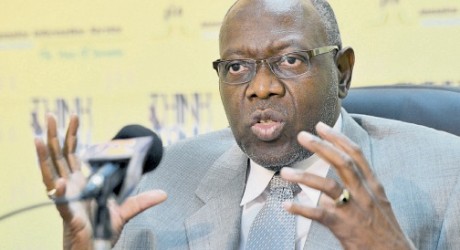Jamaica’s Minister of Health Dr. Fenton Ferguson says that HIV infected men and those in the Lesbian and Gay Communities across Jamaica will not be discriminated against and will have no barriers to accessing the island’s public health facilities.
The MOH recently trained as many as 60 health care professionals with a view to sensitizing them as to the issues affecting gay and lesbians through collaboration with the Forum of Lesbians, All-Sexuals and Gays (J-FLAG).
Minister of Health Dr Fenton Ferguson told the Jamaica Observer newspaper that J-FLAG that the training was intended to sensitize health care professionals to better treat this vulnerable population.
“This will be very helpful, as a major concern for Jamaica is the MSMs which are now consistently showing a HIV prevalence rate of 32 per cent,” Ferguson told the Observer.
Dr Ferguson said that Jamaica was able to secure US$19 million from Global Fund for its HIV programme.
“We cannot afford to lose the gain of the last decade with HIV and so we are now in a position where we will be getting US$19 million from The Global Fund which I believe coming from US$5 million is significant,” he said.
Though J-FLAG has always had an up and running clinic through the Jamaica Aids Support (JAS), many clients still stay away from the usual public health clinics, something the Minister of Health is trying to address continuously.
Brian Paul, sub-regional co-ordinator of the Caribbean Forum of Liberation and Acceptance of Genders and Sexualities (CariFLAGS) and an advocate for J-FLAGS, government’s health care system was “hostile” against the gay, lesbian and transgender communities in Jamaica.
“When you get to the gate security guards would turn you away and nurses and other administrative staff within the compound would have been hostile, and so a lot of LGBT people relied on NGOs like JAS to provide that clinical care,” he told the Observer.
“However, over the years with greater exposure and education, the health-care providers at all levels are now more knowledgeable on sexual diversity and because of that they are now more sensitive to the needs of the population, so we are seeing a lot more LGBT people accessing health-care in the public sector,” he said. Paul said that this tolerance and acceptance was as a result of years of advocacy work and education and sensitization programmes.
“The national HIV programme has also done a lot to empower its staff and to train persons to be better equipped to deal with the population,” he said.
Paul said J-FLAG’s recent training session with public health-care professionals included persons from deep rural Jamaica as well as the urban areas.














